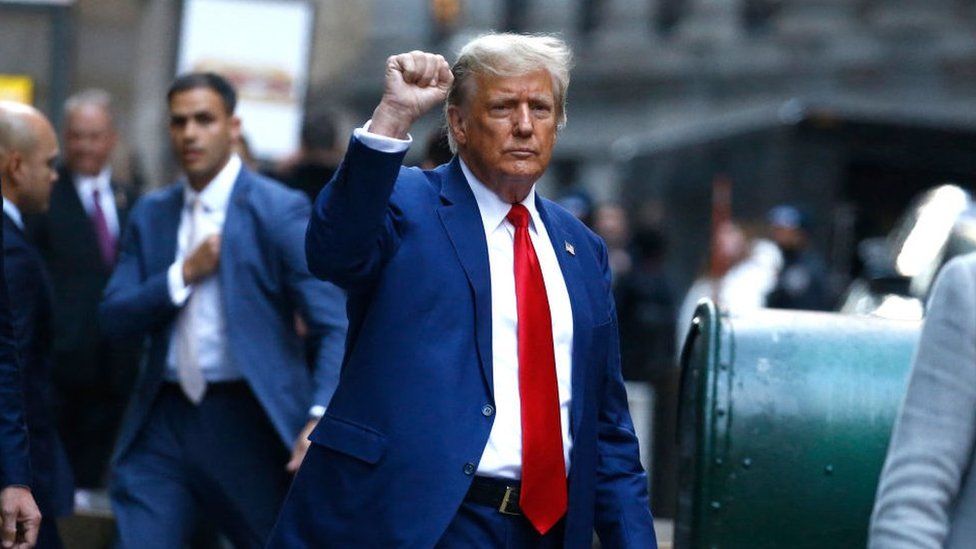-

-
-
Loading

Loading

Donald Trump has suffered a defeat in court, but it comes with a silver lining. An appeals court has ruled that Trump is not immune from criminal prosecution for actions he took while president. However, this decision has indefinitely postponed his federal trial related to the attack on the US Capitol on January 6, 2021. While Trump has not been able to claim broad presidential powers to act with impunity, the trial's tentative start date of March 4 in Washington DC has been removed from the court's calendar and it is uncertain when it may be rescheduled. This aligns with Trump's strategy of creating obstacles in the judicial process whenever possible, according to former federal prosecutor Neama Rahmani. Rahmani suggests that Trump's interest lies in delaying the case until after the November election. If he regains control of the White House, as a sitting president, he cannot be prosecuted. To achieve this delay, Trump's legal team could request a review and reconsideration by the full 11-judge DC Circuit Court of Appeals. However, this is unlikely to succeed as it would require the support of six out of the eight judges. In the meantime, the appeals court has ruled that the January 6 case can proceed while the request for review is considered. Trump also has the option to turn to the Supreme Court. They would need to decide whether to review the case or let the lower-court decision stand. They could also decide whether to put the January 6 trial on hold for now. It is expected that the Supreme Court will be the next step, as the appeals court has given Trump's legal team until February 12 to prepare their request. If the Supreme Court refuses to hear the case, the election interference case may return to its normal schedule. However, if they choose to review it, a trial would likely take place close to the election day, at the earliest. This could prompt Judge Tanya Chutkan, who is overseeing the trial, to postpone the case until after the November election so that Americans can cast their ballots. According to Professor David Super from Georgetown University, it is unlikely that the Supreme Court will agree with Trump's legal arguments, based on past court precedent and American legal tradition. However, the resulting delay would still be a win for Trump. If he also secures a win in the November election, he could potentially resolve his legal concerns through his Justice Department appointees or by using the presidential pardon power on himself. To see Trump taking the oath of office on the same Capitol steps where his supporters rioted just four years prior would indeed be remarkable and mark an unprecedented start to his second term in office.